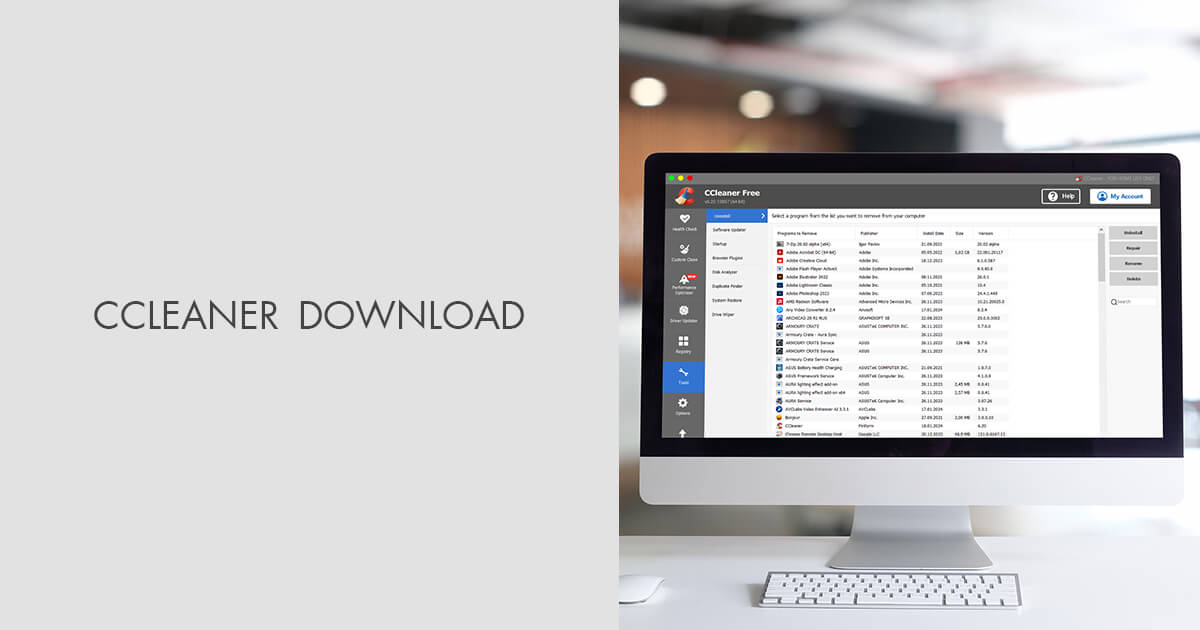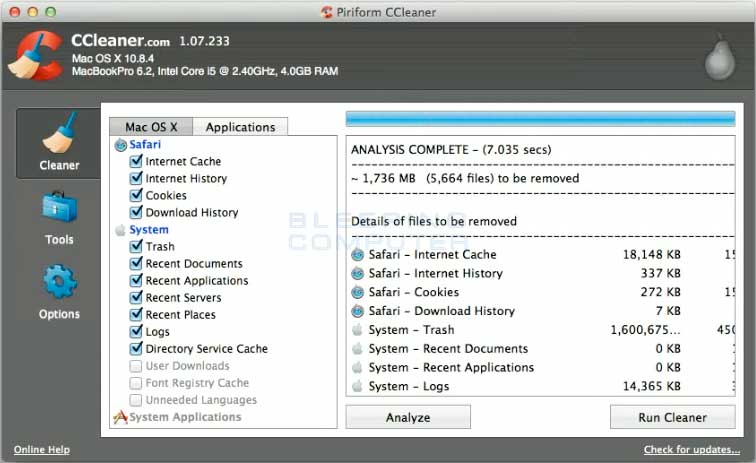
.jpg)
- #Free ccleaner for mac 10.9.5 mac os
- #Free ccleaner for mac 10.9.5 install
- #Free ccleaner for mac 10.9.5 archive
- #Free ccleaner for mac 10.9.5 free
Macs (and all computers in general) run best when there is adequate free space available for cache files and swap disk, so always aim to have some free space available.
#Free ccleaner for mac 10.9.5 install
That can easily end up taking up a couple gigabytes for major system updates, and rebooting will take care of that wasted space and also install the update. Speaking of System Updates, if you’ve downloaded them but haven’t installed them yet, they’re just sitting around taking up disk space on your Mac. It’s a good idea to reboot a Mac with some regularity, even if it’s only once a month or so to install the OS X system updates that come out periodically. Both of these files will be cleared when a Mac is rebooted, in the example below these two temporary files accounted for 21GB of disk space alone, though this was on a Mac that hadn’t been rebooted in five months. Swap files are basically things that are no longer active in memory and then swapped to storage on disk, and the sleepimage file is basically a duplication of what’s in current memory so it can be retrieved when a Mac is woken from sleep. The latter two can grow quite large if you rarely reboot a Mac. Though we rarely reboot our Macs around here, rebooting a Mac will almost always free up a fair amount of disk space, simply because it flushes system caches, some app caches, installs system updates, and perhaps more significantly, the virtual memory swap files and sleep image files. 3: Reboot the Mac & Install System Updates
#Free ccleaner for mac 10.9.5 archive
DMG file, zip file, or archive it came from. Jump to your ~/Downloads directory and sort by file size, then delete anything (everything) you don’t need any more.Ī good future habit to help manage the downloads directory is this: once you install an app, delete the installer. The user downloads folder is notorious for growing gigantic when left unchecked for a while, and it’s often the easiest pickings. It’s a good idea to relaunch apps from time to time for this reason, particularly web browsers. You can also delete the cache files manually, but it’s much easier to just relaunch your apps and have the OS clear it for you. If you haven’t quit these apps in a long time, those cache files continue to grow, and generally they aren’t cleared out until the app is quit.


#Free ccleaner for mac 10.9.5 mac os
Here are five quick tips to free up space on a hard drive with Mac OS X…Īpps like Safari, Chrome, Firefox, Photoshop, Spotify, and many others, create temporary cache files while they’re in use.


 0 kommentar(er)
0 kommentar(er)
